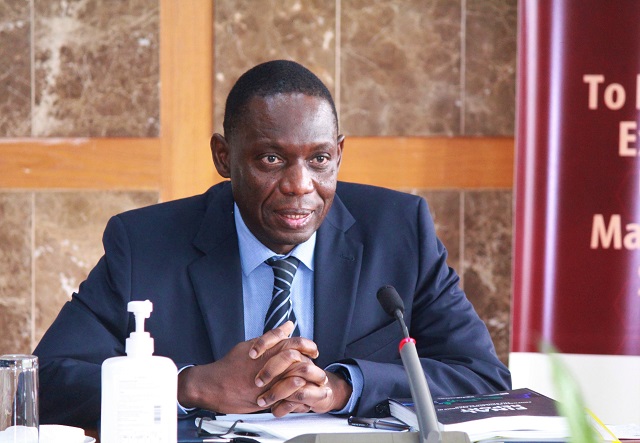
Projections foresee sustained economic growth, propelled by investments in the oil and gas and mining sectors
Kampala, Uganda | THE INDEPENDENT | In a strategic move to stabilize the country’s economic conditions, Uganda’s central bank has opted to maintain the Central Bank Rate (CBR) at 9.5%, despite a further decline in inflation rates recorded in September this year.
The CBR, a vital tool in the central bank’s toolkit, is employed to regulate the cost of money, influencing commercial bank interest rates and, consequently, steering inflation by managing the money flow within the economy.
The country’s annual headline inflation rate experienced a notable drop from 3.5% in August to 2.7% in September. Simultaneously, core inflation, excluding food and energy, declined from 3.3% to 2.4%, marking its lowest point in 22 months.
BOU Acting Governor, Michael Atingi-Ego, acknowledges that while inflation has been brought under control, certain risks persist. Potential poor agricultural output leading to elevated food prices, spikes in interest rates, and soaring global commodity prices are among the concerns.
Atingi-Ego attributes the low inflation to reduced public spending, impacting the overall economy. He said the downward trend in inflation is anticipated to persist due to lower imported inflation, decreased food prices, and subdued public demand for goods and services. However, there’s a likelihood of an upturn, reaching 4 to 5 percent levels by the end of the next year.
Nevertheless, these predictions come with caveats. Factors such as a bumper agricultural output and sustained reductions in import prices could alter the trajectory. Conversely, scenarios leading to increased inflation include a decline in the foreign exchange rate, geopolitical tensions in Europe and between the West and China, and further cuts in oil production by producing countries.
Dr. Atingi-Ego says as long as inflation remains under control, the Monetary Policy Committee plans to continue easing policy rates.
Recent estimates from the Uganda Bureau of Statistics indicate consistent economic prospects. The second quarter of 2023 recorded a substantial real GDP growth of 5.2%, a notable improvement from the 0.4% growth in the first quarter. This growth is primarily attributed to the industry and services sectors.
Projections foresee sustained economic growth, propelled by investments in the oil and gas and mining sectors. If risks are mitigated, a growth rate of around 6% is anticipated for the financial year 2023/2024.
Addressing concerns about the World Bank’s decision to halt future loans earlier this year owing to the tough anti-homosexuality law, Atingi-Ego downplays the immediate impact.
Anticipated affected loans for this year amount to about $36 million (approximately 135 billion shillings). However, loans already approved by the board will continue to be disbursed, subject to strict monitoring by the World Bank.
While alternative funding sources are being explored to cover the impending gap, ongoing discussions between the government, represented by the Ministry of Finance, Planning, and Economic Development, and the World Bank aim to resolve the impasse in the near future.
 The Independent Uganda: You get the Truth we Pay the Price
The Independent Uganda: You get the Truth we Pay the Price



